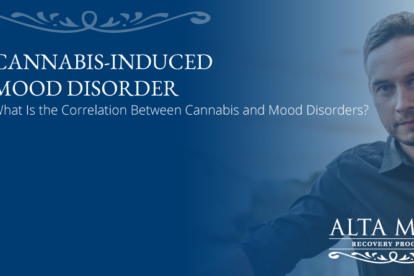What Are the Signs of Addiction?—Recognizing When Someone Needs Help

You never know when it will be too late to get help for someone with an addiction. So what are the signs of addiction behavior you can look for before they lose too much or fall too far? When you can recognize that someone is caught up in the cycle of addiction, that’s when you’ll know that it’s time for treatment.
Anthony’s so-called “rock bottom” was after his girlfriend left him and he ended up in the hospital with alcohol poisoning.
Carla’s rock bottom came when she crashed her car into a fire hydrant. She was on the way home from a restaurant meeting with a prospective client.
Dayna hit rock bottom when her ex-husband claimed full custody of their daughter because Dayna’s drug use was posing dangers.
Tamara’s rock bottom came when she overdosed on a combination of prescription medicines. She died within an hour.
The first three people were able to get help for their substance use disorders following unquestionably problematic incidents. But no one was able to successfully intervene in the last case before it was too late. In all of these stories, getting help sooner might have prevented the devastating consequences of substance abuse.
If you can recognize the early signs of addiction, you can help someone you care about to get started on the road to recovery before irreversible consequences play out. And they can once again feel empowered to prioritize their higher goals and hopes for life.
What Are the Signs of Addiction?
How can you recognize the signs of addiction to drugs or alcohol? It can be pretty obvious by the time they endure real situational, physical, psychological, or other problems. But here are some of the signs of addictive behavior you can look for even before this person’s substance abuse leads to devastating consequences.
Withdrawal
Someone who has become dependent on alcohol or drugs may begin to be more withdrawn. You may be able to tell that they are hiding details about their activities. Or it may be clear that they are hiding actual things in their home or on their person that they don’t want others to see. They may become more private, even secretive.
They might make up excuses for being late, for missing events, for being less communicative. This can signal a change in their priorities and perhaps an obsession with the substance they have come to depend on. When their substance use is openly questioned, they may deny any problems, minimize problems, or create more excuses.
Unpredictability
When someone is at the whim of their addiction, their life and their behaviors take on an unusual and unpredictable course. Their moods can swing. They may become anxious, worried, irritable, aggressive, argumentative, impulsive, and even obnoxious. And their self-awareness may diminish. Their energy levels may also be changeable and hard to predict according to normal daily patterns. In general, for someone in the grips of addiction, their lifestyle and routines can change significantly from what they used to be—and they can change from day to day.
Physical Changes
Substance abuse can affect a person’s physical appearance on a couple of different levels:
- Drugs and alcohol can compromise a person’s health directly. They may lose or gain weight. Their dental health may suffer. They may develop sores, injection marks, bruises, and other unusual injuries. Their eyes may become bloodshot or appear sunken, or their pupils may be dilated. They may appear tired if they haven’t been getting quality sleep or if they are experiencing withdrawal symptoms. They may be unusually sniffly, or they could appear pale and sickly.
- Substances can also impair a person’s motivation or ability to practice self-care. They may develop poor hygiene habits and appear unkempt, have a body odor, or be visibly dirty. They may be less committed to dressing professionally or in another manner typical of their normal lifestyle.
We're Here to Help. Call Today!
866-922-1350Personality Changes
You might also notice uncharacteristic changes in a person’s personality and daily behaviors when addiction is influencing them. They may become more unreliable and irresponsible than they were previously. They may treat others differently as if they no longer care in the same way or no longer relate to the consequences of their actions. If they cause any inconvenience or harm, they may deny or downplay their role or seek an alternative source of blame. And they may lose interest in things they used to enjoy or appear disinterested in life generally.
Cognitive Decline
Substance use can bring acute confusion, gaps in memory, and other cognitive difficulties. And substance abuse can also influence longer-term effects, including cognitive damage. You may notice a person’s disorganized thought patterns, slurred speech, an even more limited ability to cope with stress.
If you witness the person using drugs or alcohol to excess or if you find bottles or paraphernalia, these could be clear signs of a problem. But even if someone succeeds at hiding their substance abuse and dependence for a time, this list of behaviors can indicate more subtle clues to active mental health issues. Just remember that you don’t need to witness many of these signs in order to identify a problem; even one unusual change in appearance or behavior could be concerning.
When Is It Time for Addiction Treatment?
You can’t assume that addiction will always progress along a predictable course. Nor do you want to wait for the predictable signs of addiction, such as injuries, losses, and other risks that often come with untreated substance use disorders. As hard as it can be to take action when someone in your life is suffering from addiction, it may be the only way to recover their future.
The one thing you can expect of untreated addiction is that it will get worse. So, it’s never really too early to take care of the problems before they progress—to potentially dangerous or even fatal levels. The action steps toward intervention and recovery are not as daunting as you might expect with the right help.
You’ll want to handle this process carefully, and a professional interventionist can help you do so—without waiting until your loved one’s life and health get any worse. If you recognize some fo the signs of addiction, it’s time to reach for help now. It is extremely unlikely that their condition will get any better without help. And it is extremely likely that their condition will get much worse without early intervention.
Remember, you need only to commit to one step of the process at a time. The first step is making a call to find out more about the risks your family faces and the options for treatment.
Alta Mira offers comprehensive treatment for people struggling with drug and alcohol addiction as well as co-occurring mental health disorders and process addictions. Contact us to learn more about our renowned Bay Area programs and how we can help you or your loved one start the journey toward lasting recovery.






